
However that has changed.
When private organisations like IRMA and Eircom skip the judicial process and enter into agreements that curtail free speech it makes me ashamed to carry an Irish passport.
Once a free and, supposedly, democratic nation stands idly by and allows private commercial interests to take precedence over due process then what confidence can we as private citizens have in the State?
How long before other commercial entities start bullying ISPs into blocking content and cutting off users?
Some might call this simply an “enforcement” exercise, whereas I’d see it as a pretty clear case of censorship.
Don’t get me wrong. I neither condone nor support illegal activities, but, to quote Paul Durrant of the Irish ISP Association:
You don’t go after the people who built the roads if bank robbers use them for a getaway, do you?
Why should private companies like Eircom, or even ourselves, be expected to act as “policemen” for IP holders?
Earlier this year we received a “cease and desist” from IRMA in relation to some audio files that were on our network.
That the website operator had no right to put the mp3s online does not concern us.
We, as the hosting provider, had no knowledge of the files’ existence nor could we be reasonably expected to know about them.
Yet, instead of asking our customer to remove the files and putting us on notice of the alleged breach, IRMA resorted to threatening us with legal action in relation to an activity that we knew nothing about.
When our legal counsel tried to engage with IRMA in order to reach some kind of “sane” and “workable” agreement on this and future instances our advances were flatly rejected.
Why do I raise this?
As has been shown on multiple instances in the US and elsewhere, the methodology used by IRMA, RIAA and other entities is far from perfect.
As a reasonable sized hosting provider we host several thousand servers for clients of all shapes and sizes. In many cases a physical machine could be hosting hundreds if not thousands of separate clients and, as you’d expect, we do not have direct access to all of the machines. If someone either knowingly or accidentally were to upload content to a public site (or server) we would be more than happy to put them on notice of this.
However it is not viable at any level to demand that we cut off access to files immediately, as the unintended consequences and impact of such an action could have a detrimental effect on completely innocent bystanders. It would also open us as a provider open to liability were we to knowingly disrupt services to 3rd parties based solely on a demand from a private commercial entity ie. without any court orders or other legal backup.
So if IRMA gets its way with one thing you can expect it to become emboldened and start placing heavier demands before ISPs and hosting providers.
Also, in recent weeks there has been uproar due to IMRO demanding that bloggers be expected to pay a licensing fee for music blogs.
Doesn’t the music industry not see the irony in all of this?
Bloggers who take the time to write about new music, bands and albums contribute to sales. Yet they are being penalised.
But the bigger picture is a much much scarier one indeed.
The Irish government and its various agencies have been working hard to build up Ireland as a “smart economy”. Key to this strategy is IT and the Internet. As a country we have done very well in attracting “heavy hitters” to our shores.
However would we still be able to do this if we were labelled or classified in the same way as oppressive regimes?
Net neutrality is not something that a country can simply brush aside.
While protecting intellectual property rights is important, you have to ask how mcuh creativity would exist if people were not able to take inspiration from others.
Take a look at the backlash to the Digital Economy Bill in the UK which outlines just some of the issues with this sort of approach.
If the Irish government want to encourage a strong digital industry in Ireland they need to act. Failure to do so will only lead to companies such as ourselves being forced to move our businesses offshore.
Minor update 2102 – Eircom’s FAQ can be found here

22 Comments
Comments are closed.

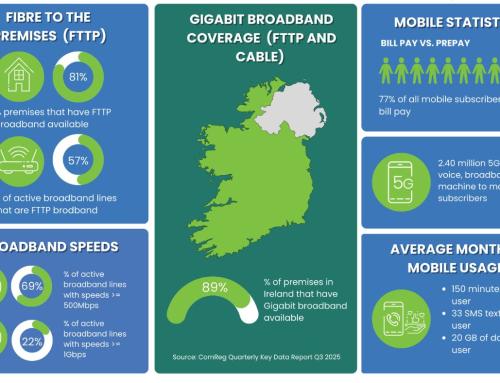
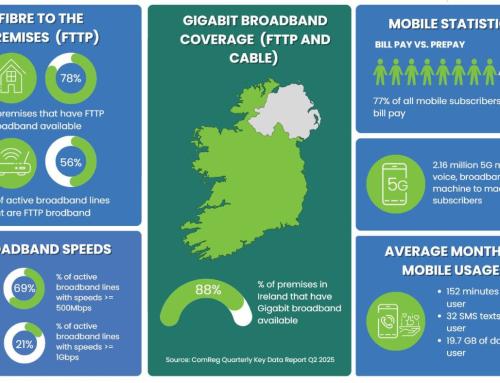
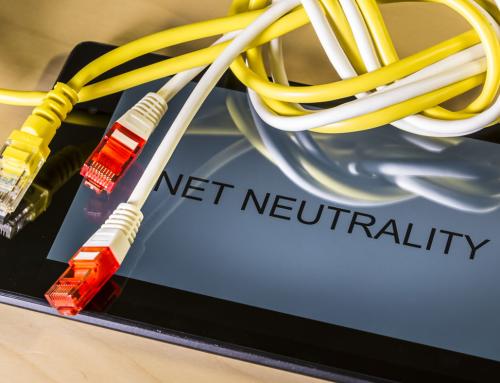
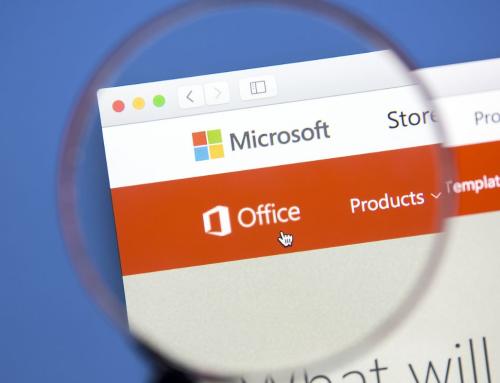
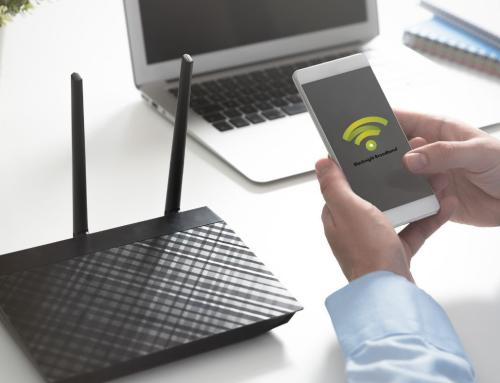

Rossa
I’ll be following up via Hotline.ie, though I doubt if we’ll hear anything from Eircom unless they’re pushed on it. IRMA on the otherhand may like to gloat.
How can it be anyway related to the constitution?
Thanks for your comment
Michele
It will be interesting to see if they release any statistics or further details of the system after some experience of it in practice. I think I heard a news report mention an expected 50 disconnections (or possibly warnings) per week.
I don’t think we’ll hear much more about the system from eircom or IRMA, rather it’s another plank in the industry campaign. Expect plenty of comment abroad about the “High Court backed/sanctioned system operating in Ireland”. An IRMA spokesperson has already referred to hoping that other ISPs “uphold the Constitution” by implementing 3-strikes.
+1 from a fellow hoster in Cork.
Adam Beecher
I wondered the exact same myself, once recovered from choking on my coffee.
However, @nimbuslaw rightly points out that Charleton J.’s judgment says copyright is a fundamental human right and therefore one of the unenemurated rights contained in the Constitution.
I assume the claim is made on that basis, but it’s a ridiculous spin to put on it.
This whole situation has been a farce from day one. It’s just lazy old codgers sitting at a desk with no computer, watching their profits dwindle and blame it all on the Internet, that they never access, because they are too lazy to get up and realise that they need to tackle the download of music in a more strategic manner.
And you’re right, it’s such a contradication for the music industry to be doing this to bloggers when they are in fact promoting the acts in most cases free of charge. It’s just pure laziness and ignorance on their behalf.
Google has to be one of the biggest abusers of giving access to copyrighted material, are they all too afraid to go after Google with their billions? I think so…
Interesting figures on just how much artists can earn online:
http://www.informationisbeautiful.net/2010/how-much-do-music-artists-earn-online/
Michele
I fully understand and can relate to your piece above. As someone who flits back and forth between the UK and Ireland I was watching the development of the UK’s digital economy bill and could not believe quite how draconian and one-sided it is.
Going by that travesty of the political process, it does not bode well. For whilst your points and arguments are clearly made, the same was true of almost exactly the same thing in UK terms. The fact the UK parliament pushed it through at breakneck speed in the last parliamentary days of the dying labour government doesn’t change the fact that we’re stuck with it and it sets yet another precedent which is only likely to make it easier for other governments to toe the line…
This did little to prevent the passage of a bill which more or less enshrines in law a responsibility upon ISPs and hosts to police their customer’s activities. It’s the build the road… use the road argument, except you are also meant to police and catch all alleged baddies and you won’t get compensated for the out of pocket costs! Its actually daylight robbery by, amongst others, the music lobby who got this pushed through. If it’s their copyright they’re worried about they should pay to police it.
I’m starting to feel my blood pressure rising!
Ralph
http://ennclick.com
Tom
Google has been taken to court in several jurisdictions for copyright / intellectual property related issues. As a US company they are also bound by the terms of the DMCA, so they receive and process a large number of DMCA takedown notices – most commonly in relation to YouTube I believe
Thanks for your comments
Michele
Ralph
While I found the entire Digital Economy Bill and its first level of enactment to be farcical (and it still will need secondary legislation) it is still legislation.
The issue with the IRMA / Eircom type situation is that it is purely a private arrangement between two corporate entities.
Without there being any transparency, due process or any form of oversight this sets a very nasty precedent.
Other ISPs are being “lined up” by IRMA, with UPC being the first one to go to court in the coming weeks. According to one statement I read they have plans to target at least two others in the short term.
As a provider, albeit not of access services like Eircom or UPC, we have a duty to our clients in the first instance. If that means that we will be forced to litigate then it will hit our bottom line and ultimately have an impact on our ability to offer quality services at a competitive price.
We have and always will work with law enforcement, but I cannot see why we, or any other company, should be expected to police our clients for 3rd parties.
Thanks for your comments
Michele
I really appreciate that everyone here is taking this so seriously. A few of us are trying to organise a response to all of this as we feel that our voices are not being heard by our politicians and judges. Please Join us – Sorry for the plug…
InternetNeutralityIreland.com
Thanks,
Niall
Perhaps Echelon spy listening, the CIA, FBI, MI5, MI6 and Garda Patrol will now want the roads and phone exchanges and postal route of those planning and doing naughty stuff to be shut down till further notice?
Given the roads analogy used here, could not resst this link from today
http://www.irishtimes.com/newspaper/breaking/2010/0528/breaking33.html
“He said the checkpoints would be manned by gardaí, members of the Revenue Commissioners, customs officials, social welfare inspectors and other groups.” maybe imro/irma:)
“If that means that we will be forced to litigate then it will hit our bottom line and ultimately have an impact on our ability to offer quality services at a competitive price.”
I presume that’s exactly why Eircom caved in and went along with IRMA’s demands. They just don’t have the interest or money in fighting this particular battle. Wasn’t it reported yesterday that their profits were down again last quarter?
They’ve probably put together some really cheap and cheerful way of tracking copyrighted material. Anything to make this all go away and cost them as little as possible.
It’s a difficult decision for ISPs. Do they stand up to IRMA and fight (taking on the cost in the process) or do they back down and face losing customers.
As for the government… I presume this particular issue is way down their list of priorities given everything else that’s going on.
Here’s a good image that sums up where Net Neutrality is heading:
http://trueslant.com/jeffhoard/files/2009/10/NetNue.jpg
Adrian
Eircom didn’t wait for a court decision before reaching an agreement with IRMA.
If they had then things might be very different, though we’ll never know now
Michele
Seanie
This is exactly why we asked them for some level of indemnity with respect to takedowns. Unfortunately they wouldn’t budge.
As members of Hotline.ie we would always respect any requests in relation to Hotline.ie etc., however for most other things we would really want to have a proper court order.
Thanks for your comments
Michele
Well said Michele
Being in the same game, I couldnt agree with you more.
If you take down files based on a demand from private company, then the client could sue and also, what if IRMA actually got it wrong and asked you to remove a file in error?
It has been discussed with me that there is a parallel with defamatory content/ illegal porn here but I disagree. In these cases, once we have been notified, there is a certain onus on providers to take action, but in the case of a music/video file, there is no damage to a persons image etc. It is up to the client to prove they have a legal licence or to IRMA/RIAA to prove otherwise.
I think any decent solicitor should be able to defend something like this easily.
I’ve got a letter in the Irish Times today about this: http://www.irishtimes.com/newspaper/letters/2010/0528/1224271300616.html
Michele
Google have been in court over YouTube alright – but I’m talking about their search facillity that facilitates the search for finding copyrighted material.
I don’t know of one case that has gone before the court. Please enlighten if you know of one.
Tom
Last paragraph in this post sounds about right.
Again, well done for taking a corporate position on this Michele. Sadly, Magnet aren’t doing the same:
http://boards.ie/vbulletin/showthread.php?t=2055919832
adam
Strange question here but is it legal to monitor someone’s IP address to see what they are up to?
I mean if someone sits across the road with a camera pointed in my window I can probably call the gardai? (though I realise this is potentially what PI’s do) is this much different ?
I realise with the likes of bittorrent you’re broadcasting your IP as having whatever chunks of the files … but it kinda sounds weird.
Next you’ll have packet sniffers checking whats in your emails ? which a lot of the time won’t be encrypted .. so where does it end.